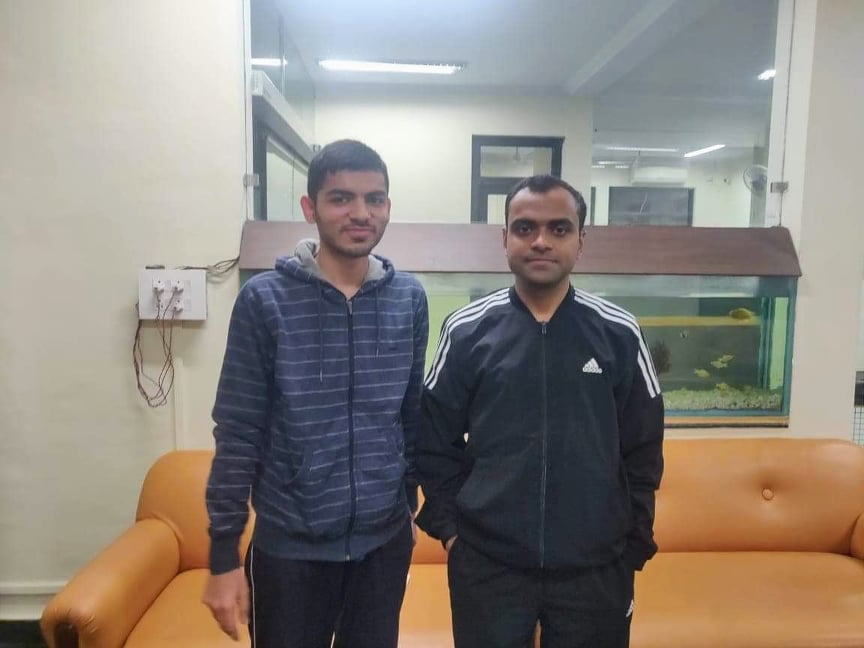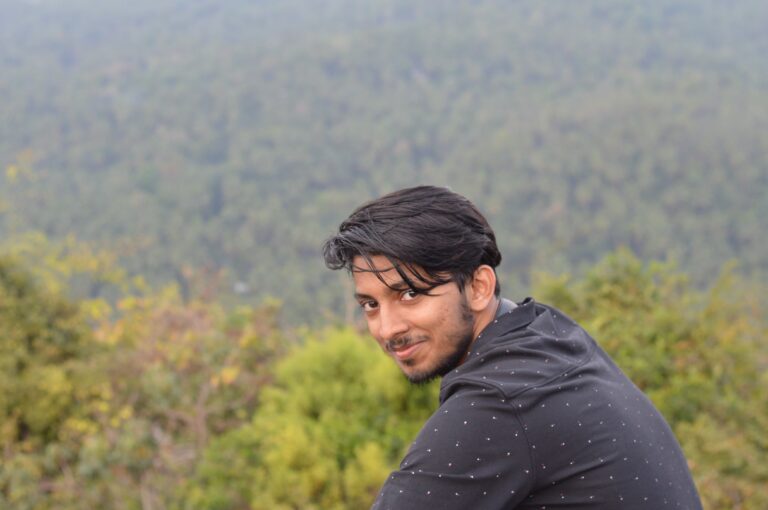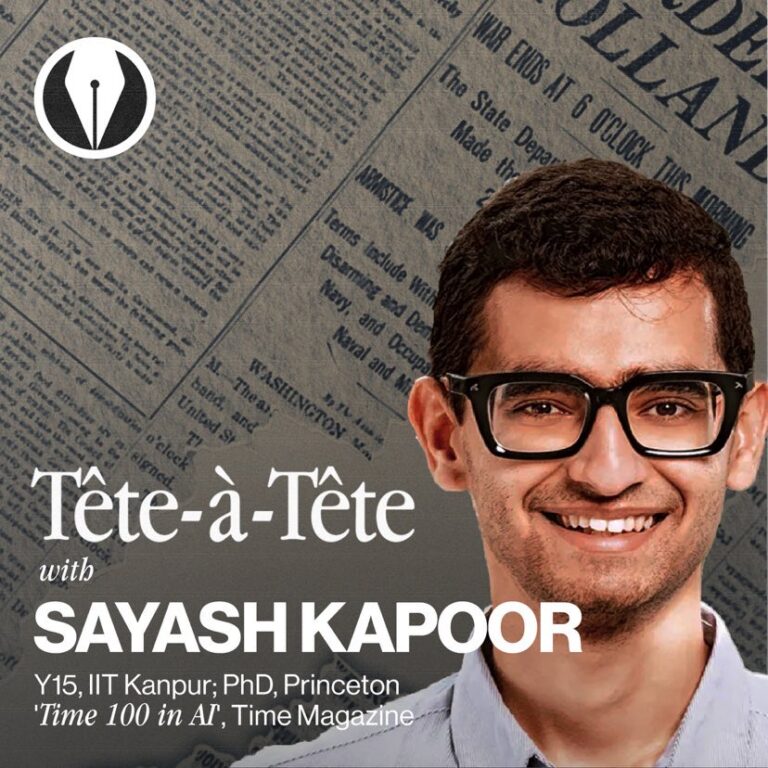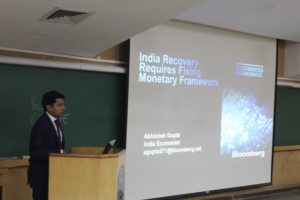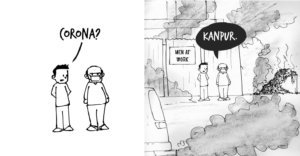As a part of Policy Conclave 2020, Students’ Opinion Society organised a talk on “From engineering to bureaucracy” by Mr Mayur Dixit, an IITK Y4 alumnus, who graduated with rank 1 as a Mechanical engineer and thereafter joined IIM Bangalore. He cleared UPSC CSE 2012 with AIR 11 and is currently the Chief Development Officer at Udham Singh Nagar, Uttarakhand. Vox got an opportunity to interact with him and discuss his journey over a quick QnA session.
What made you choose bureaucracy over engineering or management as your career option?
This was my personal choice. Despite having a slight inclination towards civil services, I wasn’t completely sure back then if that was truly meant for me. Managerial and monitoring work interested me which motivated me for choosing MBA instead of starting to work after graduation or going ahead in my domain of engineering. However, after working in the industry for 3 years, the monotonicity and profit driven nature of work along with the experiences and motivation I received from some friends and college seniors working in the public sector, inspired me to pursue my long-held dream finally. The diverse nature of any public service job personally excites me. Additionally, interest in working and living in my own country over settling abroad was also a contributing factor. I had come to this realisation that a person doesn’t require large amount of deals in life. All they need is everything in only moderate amount. Of all the many more reasons, these were perhaps the major ones to make me choose this path.
What does your schedule look like?
Some things are planned but most things are unplanned. I get to the office by around 9.30 or 10 am. Uniqueness of my job is that I have the freedom to plan my day further. I decide my own work and plan its appropriate distribution and operation. If there’s some minister or VIP coming in, then duties usually differ. But otherwise, we have routine meetings, discussions, inspections or reviews along with monitoring work. We would need to go into the field to review the work progress and check if the planning done is actually getting implemented. We also meet with different stakeholders, political executives, beneficiaries or scheme planners to discuss their implementation process. Under some law and order situation, or natural disaster, work is nonstop regardless of day or time. It’s a hard press job during such situations of emergency.
What has been your hardest posting or your biggest challenge in your line of duty?
During my first posting, the biggest challenge I faced was a law and order breakdown. I was the SDM (Sub-divisional Magistrate) in Roorkee and the city witnessed communal riots during that time. Maintaining peace and managing them was very challenging since I was also very new to the service. We had to impose a 10-15 days curfew and administrating the process was a testing task. Thankfully with the support of seniors, we were able to manage it through. From that incident, I realised that different sections or parts of government need to function together or else the system can’t run as needed. Winning the confidence of local people and maintaining good relations with opinionated leaders of conflicting societies also helps in such times of crisis as they can be of benefit in times of emergency like such. Rather than talking to a crowd which has no identity, it’s better to talk with their delegates or people possessing certain influence over their communities.
Since you have been from sought after colleges, how did you balance your study with personal life and other work?
It’s not unusual to study in such colleges. I don’t classify myself as any extraordinary. All you need to do is work hard and show commitment towards your goal. Never have a slightest doubt on your potential. Even if you suffer failure, rethink your strategy and not your personality. Be convinced that whatever you have decided is in your best interest. And once if you decide you want to write the UPSC exam then there’s no looking back. Commitment is fundamental. Having a job while preparing was profitable for me as I learned in a different way rather than mugging and reading so many books. I strictly adhered to the syllabus by concentrating only on reading about the relevant topics, daily newspaper and following my very own notes for revision. Scarcity of time led to a smart preparation. Since I worked in finance industry, that particular topic was much easy for me to write about in the exam, as I was updated with the latest economics, finance terms and operations I handled during my job. Other topics were very interesting for me because they were very different from my routine work profile. For me the preparation was joyful and relaxing. Needless to say, that one will have to make certain sacrifices also to maintain a constant routine of studying and keep focus on their target.
What kept you motivated through the challenging preparation phase?
I enjoyed working in the private sector, but after a certain point the work had got monotonous. My domain was financial modelling for a certain number of companies, and so was of my senior with slight variation for just a larger set of companies. I did not wish to be at their position after 5 years or so which led me to thinking about my future career prospects. I wanted to switch to something that could provide me diversity, experience various fields and civil services fits much well to that category. In it, after having a decent amount of experience in various departments, one gets to choose their specialisation and work in its scheme structuring/policy making or even study further in that particular discipline. The work is all directed towards nation building and private sector work is more oriented towards profit making. Although private sector is very essential for growth of country as government cannot provide jobs to everyone, for me personally, I’m not interested in working where only profit is the backend reason for doing the task.
Any inspiration from within the family or any acquaintance of yours?
My father used to motivate me to at least consider civil services as a possible option, but I mostly neglected it. But finally, when I had the realisation myself, I felt that he was right all throughout. My wife also has been my constant support system, because she’s the one who manages our home as the work timings can be often very abrupt. I need to keep myself healthy also through this as it’s essential to manage personal life along. I don’t consume sugar in any form whatsoever, do not smoke or drink alcohol. Although my work structure doesn’t usually permit me, I try exercising regularly.
Has there been an incidence where you faced certain pressure by ministers?
Never. No pressure. I don’t even know of anyone of being in such a situation. These events are extremely unlikely. They are also elected government officials and know what they’re doing. And if I know I’m honest, aware of what my duties and rights are, then I can never land in any such scenario. If someone is asking me to do something which I know is not right, I just need to tell politely that such and such is not possible due to whatever reason as per law. There’s nothing they can do about it. Arrogance should never be reflected in your demeanour as your dealings are often with officials much senior to you in the hierarchy. A polite refusal is never taken in wrong direction.
Any word of advice to those who aspire to become civil servants and a message for the students of IITK?
Set your goal firm if you really want to be a civil servant. If your personality is so that you want to help people and be their voice, and wish to contribute in nation building, then work hard with great dedication. There’s nothing that can hold you back if you have a firm resolve. No matter what hardships you face, if you keep on moving forward, they will all eventually vanish.
IITK would always have a special place in my heart. It’s my alma mater. I achieved so much from this place. It is one of the best institutions in India. I feel I wasn’t able to utilize all the facilities which was a lack on my behalf, but I would give this suggestion to all students that utilize your time on campus well. This time shall never return.
We thank Sir for taking out the time to talk to us and sharing his experiences.
Credits: Dhruv Chhabra




